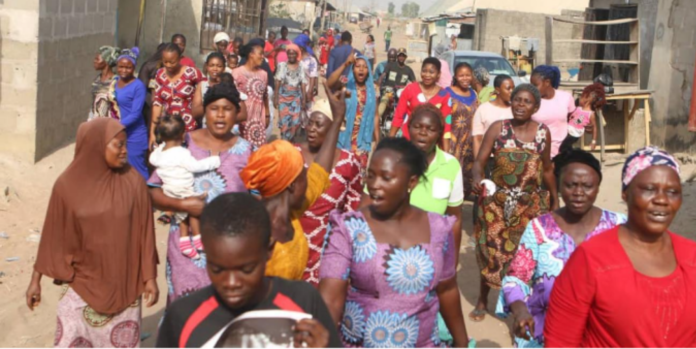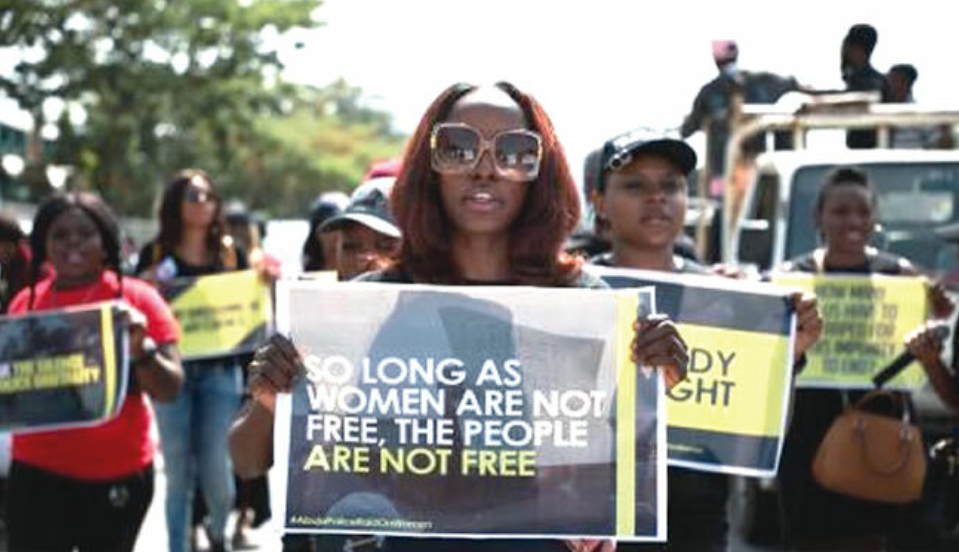
Women in Nigeria joined women worldwide to commemorate International Women’s Day again on March 8. The official theme for this year was “Inspire Inclusion.” Women and men who fight for a better world, as working people and youth, must go back to the spirit of the origin of the IWD for our inspiration on what this must mean to us: struggle to break the chains of patriarchy and exploitation.
The first “Women’s Day” was organised in 1909 by women who were socialists and members of the Socialist Party of America (SPA). This was after the party called for massive demonstrations in February 1909 for the right of women to vote in elections.
Revolutionary women like Theresa Serber Malkiel, a factory worker who became a leading SPA member rose to the occasion. They campaigned vigorously against the twin evils of capitalism which is at the heart of the exploitation of working women and men alike, as well as against male chauvinism even in the ranks of the socialist movement. They organised mass meetings of thousands of women in New York and several other cities in the United States in February 1909.
Inspired by the successful mobilisation of 1909, they called for this to be an annual National Women’s Day event, following up with further mass meetings in 1910. Their action inspired socialist women from other countries when they gathered in August 1910 for the Second International Socialist Women’s Conference in Copenhagen. There were one hundred delegates at this meeting from seventeen countries. They were all members of women’s organisations of socialist groups that were part of the Socialist International. And they agreed that, with effect from 1911 the Women’s Day would be commemorated as International Women’s Day in their different countries with massive street demonstrations.
A motion to that effect was moved by Clara Zetkin a German revolutionary socialist who had been very active in fighting for women’s rights. She called for the first International Women’s Day to be held across Europe on March 8. This day was very significant as it also marked the 40th anniversary of the Paris Commune when workers seized power from the exploiter class of capitalists for the first time in history.
The fighting tradition of the IWD was maintained for decades. The Russian Revolution started on 8 March as thousands of women took to the streets. They seized the opportunity of that day to demonstrate against hunger, hardship and the mass killing of poor Russian people during World War I which was raging at the time. This is very much like the inspiring leadership that women in Niger, Kaduna and Kogi states gave in kicking off the #NoToHunger protests in Nigeria last month, as well as in 2021 when women in Gwagwalada marked the 2021 IWD with protests against hunger and hardship, chanting “Buhari Must Go.”
After workers’ power was enthroned with the October 1917 Revolution in Russia, 8 March was made a national public holiday. This was the first time such a step was taken in any country. For sixty years, it was socialists who continued to fly the flag of struggle, marking IWD in their countries, even though the governments of most countries did not recognise the day. Realising the widespread support that the commemoration of the day by radicals and revolutionaries had won, the United Nations adopted it in 1977. For the capitalist governments of the UN’s Member States, the aim was to tame the revolutionary spirit of the day. Corporations have followed the states. They promote the day as one for empty words, in place of struggle to win women’s liberation and emancipation of the exploited.
As we mark IWD today, we must rededicate ourselves to the founding principles of the Day. Like Thomas Sankara, we must “hear the roar of women’s silence” and bold struggles. We must “sense the rumble of their storm and feel the fury of their revolt” as we witnessed in the #EndSARS Rebellion in 2020, and more recently in the unfolding nationwide protests against hunger and hardship.

The founding principles of the IWD are revolutionary. We must make this clear to male socialists and working-class activists who are our comrades, as much as to the capitalists who exploit us. Many men, including revolutionary socialists, have also not been able to shake off the muck of patriarchy from their politics and ideas. The words of Theresa Malkiel words in her 1909 essay titled “Where Do We Stand on the Women Question?” are still worrisomely true to date:
For the workingwoman of today finds herself between two fires—on the one hand, she faces the capitalist class, her bitterest enemy; it foresees a far-reaching danger in her emancipation and with all the ability of its money power tries to resist her eventual advent into the civilized world. In her anguish, the workingwoman turns towards her brothers in the hope to find a strong support in their midst, but she is doomed to be disillusioned, for they discourage her activity and are utterly listless towards the outcome of her struggle.
We must no longer accept tokenism in the struggle for women’s rights and gender equality. As Sankara also said: “there is no true social revolution without the liberation of women.” Going forward, as working class and youth activists, we must inspire revolution, with the unambiguous inclusion of women’s liberation.
by Funmi ADEDAYO








